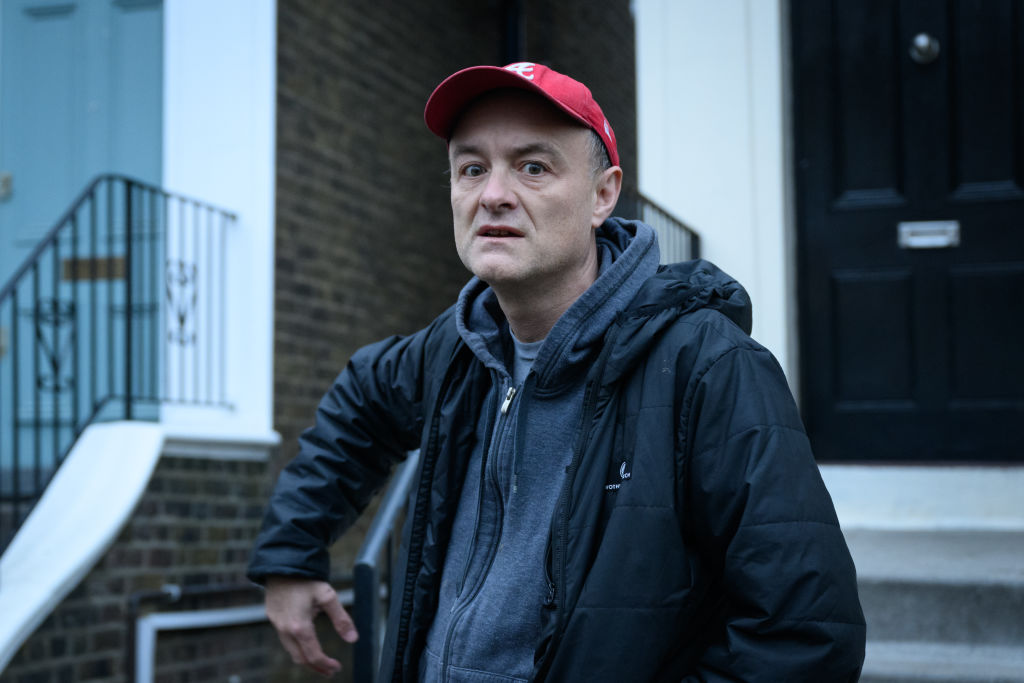The long shadow of Dominic Cummings might just start an invention boom

ARIA, the government sponsored independent body is designed to fund new scientific and innovation projects. It might the last hangover of Dominic Cummings in Downing Street, writes Eliot Wilson
Dominic Cummings may have left Downing Street in 2021, but his shadow in politics is long. Last week, the research and innovation minister, George Freeman, announced the formal creation of the Advanced Research and Invention Agency (ARIA), an independent, government-sponsored body designed to fund high-risk, high-reward scientific research.
It was one of the pet projects of Boris Johnson’s former senior adviser, modelled on the US’s Defense Advanced Research Projects Agency (DARPA), an organisation founded during the Space Race of the 1950s to foster leading-edge, sometimes bleeding-edge research and development for the armed forces. For anyone who has ever had the misfortune to end up reading Cummings’s Substack, both DARPA and ARIA are frequent guests.
ARIA will bring together expertise from across the disciplines of science and research, with a high level of innovative freedom and creative thinking, to support the government’s plans “to build a better future with innovation at the heart of growing the economy and improving lives”. While it has the ring of Pollyanna-ish jargon about it, the organisation has been given an initial budget of £800m over four years and its primary purpose is to work at speed to provide seed funding for research, then follow up with larger grants for successful projects.
This is the kind of agile, dynamic, creative approach to research that encapsulated Dominic Cummings’s vision of the future state, while also, by implication, underlining his criticisms of the existing public sector. When Dr Ilan Gur, an engineer educated at Berkeley and the founder and chief executive officer of Activate, a California research hub, was announced as ARIA’s chief executive last summer, Cummings was cock-a-hoop. He tweeted enthusiastically “Fantastic to see efforts from so many officials, scientists, deep state, & misfits pay off with something left/right/remain/leave can all support.”
This supports the belief of Cummings and others that science and research must be the government’s overriding priority. He went on that “science funding must become much more diverse with much less friction”, cherishing this notion of innovation as a magic bullet to our many post-pandemic, post-Brexit challenges, and ministers have been encouraging the idea of the UK as a “science superpower” since at least 2021. For many, the success of the vaccine taskforce in developing and deploying the Covid-19 inoculate was an illustration of the potential on this area, and it is no coincidence that Dame Kate Bingham, the taskforce chair, is a director of ARIA.
But putting funding behind it and making it a successful venture is a different story, as anyone in venture capital will tell you. Gur certainly has an encouraging track record in the field: his Activate organisation has sponsored more than 100 science-related start-ups. Meanwhile, the UK has been ranked fourth in the Global Innovation Index in 2021 and 2022, so this is a field in which we have some considerable strength. This placed us as performing “above expectation”.
It is innovation which marks out some of the world’s most successful businesses: Apple, Amazon, Tesla and Moderna are among the most innovative companies globally, and they have not only considerable commercial success but also great influence. If ARIA can prove itself a flexible, agile and successful sponsor of research, it will be building on the country’s existing strengths. The hope is that success will breed further success and allow the UK to grow its way to restored prosperity.
But we cannot afford to reach for the rose-tinted spectacles when it comes to ARIA. It is ambitious but success needs more than that. While its leadership will have £200m per year to play with, DARPA, its US counterpart and inspiration, spends around $3.5bn, clearly on a different level of investment. Professor John Womersley of Oxford’s Department of Physics has warned that the new body must have a culture of openness and honesty, and must create an active communications strategy so that the public will understand ARIA’s purpose but also its approach to risk.
It is easy to be cynical: indeed, Britain would increase its medal haul if wary fatalism were an Olympic sport. Let us be cautious, of course: magic bullets are rarely as magic as we hope, and £200m per year is not going to transform our international standing. But perhaps ARIA can at least begin to nudge us forward, and give more strength to an area in which we already perform impressively.